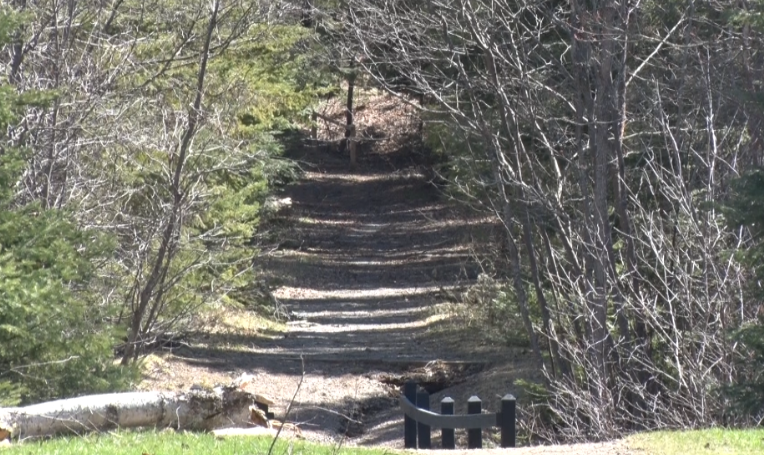Safety tips before hitting the trails

CHAMPION — With state parks and campgrounds about to welcome guests for the spring season, hikers are getting ready to hit the trails. Although many outdoor enthusiasts know the ropes of camping quite well, there are some safety tips to keep in mind.
For many campers, it’s time to dust off the hiking equipment and get ready to hit the trails.
“We’re all trying to get our places open and get ready for everyone to come out and enjoy it,” said Van Riper State Park Supervisor, Douglas Barry.
State parks in the area are currently being cleaned up for tourists and bathroom buildings are set to officially be open on May 11th. Ensuring the parks are safe for all guests is of utmost importance
.
“We want to make sure the place is safe so we’re checking electrical boxes, making the sure trees are good and we are breaking down those hazardous trees, and makings sure the picnic tables are there, and everything is ready so you can have a great time,” said Barry.
Whether you are camping at a state park, such as Van Riper or hiking in a more isolated area, there are some safety tips to keep in mind. Planning ahead is a huge part of preparing for a trip, knowing your body’s limitations while hiking is necessary, and letting someone know the location of your trip is extremely useful.
“Not only knowing your limitations and communications but for hiking in itself, wear proper clothing and dress in layers, wear proper shoes, flip flops aren’t good for aggressive hiking. Water is important, you want to stay hydrated, you can get in trouble really fast with lack of water,” said District One Law Supervisor, Lt. Pete Wright.
Having a charged cell phone is a key tool to bring out while hiking or camping. If you find yourself in an emergency situation with no cell service, rather than leaving your location, it’s encouraged to stay put.
“The theory is that if you’ve told people where you are going to be and you don’t show up the time that you said you would be back, people will come looking for you. Its best if you just stay put, make a shelter and stay warm. You are not going to starve to death but you are going to want to stay warm, conserve your energy, and just wait,” said Lt. Wright.
Some of the needed items that should be included in a backpack are a compass, a fire starter, water, and a first aid kit. When dealing with wildlife encounters such as moose and bear, keeping your distance is vital.
“You have to respect these animals, they are big, heavy, and you’ll want to keep your distance. For a bear, it is best when you are hiking to try and make noise so you don’t come around a corner and surprise a bear,” said Lt. Wright.
Keeping these tips in mind can ensure a safe trip wherever the adventure takes you.
